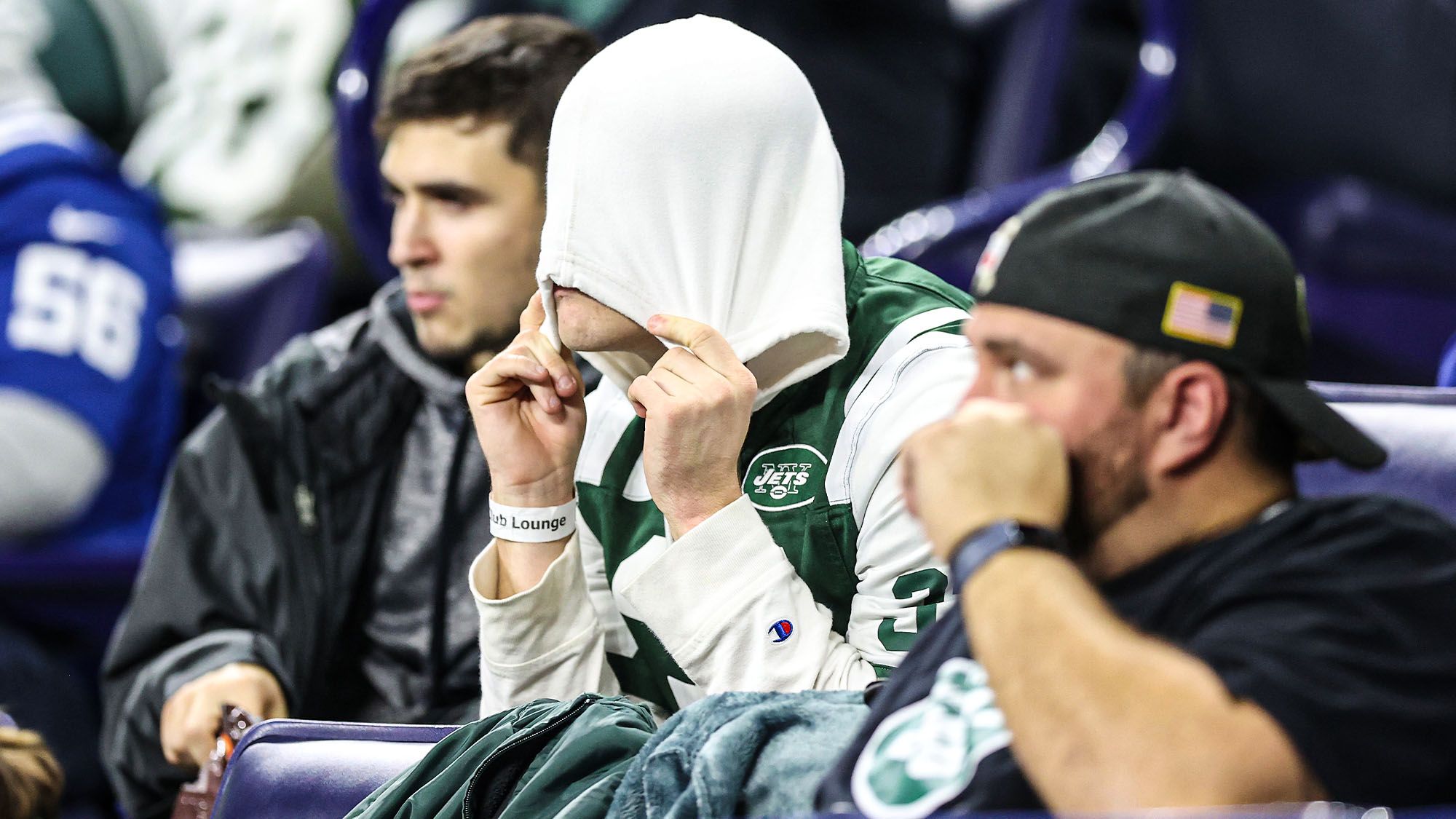New York Jets fans will never give up on their team no matter how much losing they go through. What motivates them to do so?
The New York Jets franchise is no stranger to losing. Historically, the Jets are one of the most snake-bitten franchises in the NFL. The search for the next Joe Namath has spanned over 50 years and encompassed guys from Richard Todd to Sam Darnold. Jets fans of all ages wonder if they’ll ever see a championship in their lifetimes.
Still, the Jets faithful persevere. The “J-E-T-S JETS! JETS! JETS!” chant echoes around New York and New Jersey. The stadium sells out each week. Fans may call up talk radio and tweet incessantly about how done they are with the team, but they just can’t kick the loyalty from their childhood.
That leads to the greater psychological question: why do fans root for teams who lose year in and year out? What spurs that loyalty?
To understand this question, we need to delve into the reasons that people root for sports teams in the first place.
People who are not sports fans are utterly confounded by the attachment that fans have to their teams. Since the word “fan” is short for “fanatic”, and fanaticism is generally not considered a positive attribute, non-fans will scoff at fandom. After all, why would one invest so much time, energy, and heart into an endeavor that is almost guaranteed to end in failure—and is not even directly related to the person themselves?
According to a 2006 Psychological Science article by Shirley Wang, people identify with a sports team in similar ways as they identify with ethnicity, gender, and nationality. The main draw of sports fandom, therefore, is not winning or losing, just as the identification with one’s gender or ethnicity is not dependent on how objectively successful that group is. It is the identification itself that is the goal and the psychological pull.
The kinship that fans of the same team feel for one another is like that of an individual in a foreign country who sees another person of the same culture or ethnicity. Fandom is very much a social experience; few fans find enjoyment out of rooting for their team without having some sort of social connection involved, whether attending games with friends, discussing the team on social media, or wearing the team’s colors in a show of solidarity with others.
In this sense, fandom can be very healthy, as it connects us with like-minded people and provides a sense of belonging.
Interestingly, a 1998 study of hockey fans found differences in why those fans supported their teams. While fans of strong teams stated that they rooted for their teams because of performance, fans of poorer teams turned to other aspects of the team that they liked, including individual players and historical tradition.
Because fans identify with the team as an extension of themselves, the need to see themselves in a positive light has them finding other positive aspects of the team. That is why the accessibility of sports players, including signing autographs and doing interviews, is so important to the fan: it is another way to identify with the team on a human level.
Additionally, having a strong fan community often mitigates the disappointment of losing. “A sorrow shared is a sorrow halved” holds true after a crushing defeat or continual years of losing. Community and belonging through thick and thin build resilience.
There are many other psychological reasons for sports fandom, some with positive ramifications, others less so. But the reason that best explains why people continue to root for teams who lose is that of identity and belonging.
This brings us back to the Jets. Long-suffering fans continue to root for their team because it is about so much more than winning and losing. The Jets’ fan community commiserates and suffers together while collectively hoping and keeping each other’s spirits up.
This Jets team, with Joe Douglas and Robert Saleh at the helm, has renewed fans’ hope for more than one reason. Besides the influx of talent that Douglas has brought in this season, he and Saleh have committed to a culture that fans can identify with and be proud of.
When a team does things the right way, when its players play hard and want to be there, it fosters a sense of pride in team identity. Obviously, continual losing will eventually wear down even the strongest of team cultures, but building from a character mindset brings together an even stronger community.
When Jets fans hear that “J-E-T-S JETS! JETS! JETS!” chant resound, when they see a fellow fan in the green and white, and when they take selfies with Garrett Wilson and Jermaine Johnson, it makes all the losing take a backseat.
Ultimately, this underdog team is still the team of fans’ hearts. So get used to it, non-fanatics: the Jets identity is here to stay, through the good times and bad.


